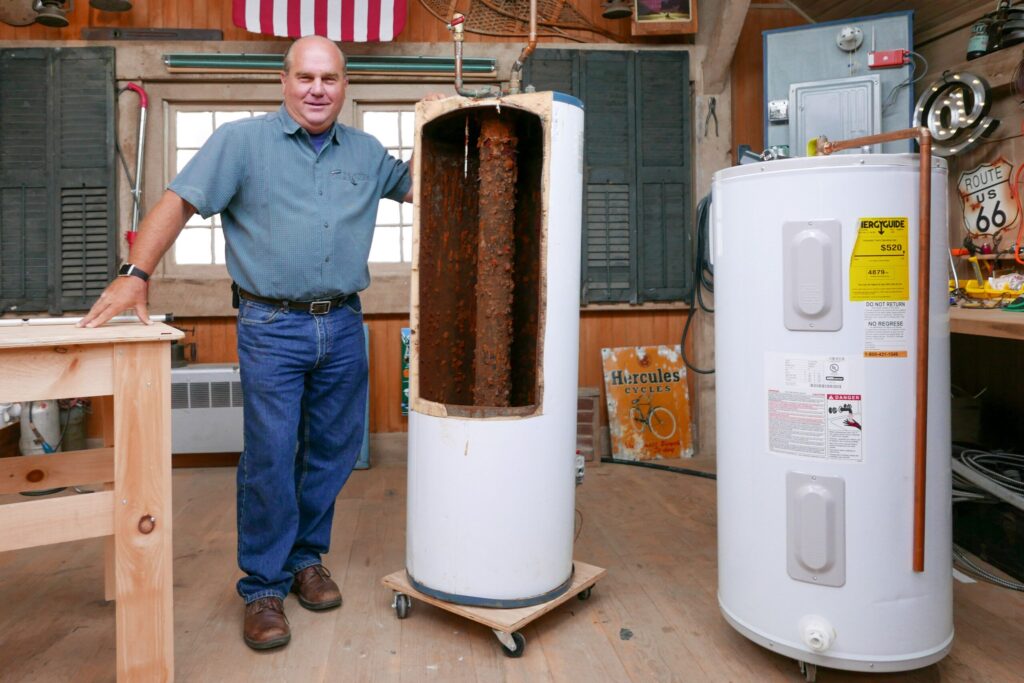Are you looking for the right gas hot water heater to suit your needs? If so, then this guide is perfect for you. Well, explore a range of features and considerations when choosing a gas hot water heater, from size and power output to cost-efficiency and eco-friendliness.
With our help, you can be sure that youre selecting the best possible option for your home or business. We’ll also provide helpful tips on installation, maintenance, and repair – all designed to ensure both safety and long life of your new appliance. So let’s start exploring how to select the perfect gas hot water heater!
1. Understanding Gas Hot Water Heaters
Efficient plumbing is a crucial aspect of any kitchen renovation project, and hiring a hot water system installer can ensure that your kitchen is equipped with a reliable and efficient hot water system. When planning your kitchen layout, it’s important to consider plumbing layouts that maximize efficiency.
For instance, a single-basin sink can provide more space for washing dishes and performing other tasks than a double-basin sink. Installing multiple dishwashers or sinks can also save time and speed up workflow. Careful placement of taps and boiling water systems can make food preparation faster and safer.
It’s also important to consider waste disposal by adding drains or pipes designed for environmentally friendly disposal of food waste. To further increase efficiency, investing in smart appliances with built-in sensors or automatic defrosting capabilities can be highly beneficial.
2. Evaluating Your Home’s Needs and Space Requirements

When evaluating your homes needs and space requirements for a gas hot water heater, it is important to take into account the size of the tank and its output capability. The larger the tank, typically the more gallons of hot water can be produced in an hour.
Additionally, you will need to measure how much room is available in your home for installation as well as what type of venting system works best with your existing setup. Lastly, consider whether or not you want a standard model or one that offers additional features such as energy efficiency and temperature control. All these factors should be weighed before making any decisions about which gas hot water heater is right for you.
3. Comparing Different Types of Gas Hot Water Heater Models
When selecting a gas hot water heater, it’s important to compare different types of models in order to find the right one for your home. Gas heaters come in multiple sizes and styles, each with its own set of features that should be taken into account when making a decision.
A tankless model is an option for those who don’t have much space or are looking for a more energy-efficient solution. These typically require less maintenance than traditional tanked models but can be pricier upfront. Tank-style gas heaters generally hold more hot water and last longer than their tankless counterparts, but they may not fit everyone’s needs or budget.
High-efficiency models offer another alternative as they use advanced technology to reduce fuel costs while still providing plenty of hot water on demand. Thus, there are many factors that need to be considered before making any purchase decision; understanding the various options will help you pick out the best model for your particular situation.
4. Considering Efficiency Ratings & Cost Factors

When selecting the right gas hot water heater, it is important to consider efficiency ratings and cost factors. Efficiency ratings can help you determine how much energy your device consumes, while cost factors will help you decide which kind of heater fits your budget.
It is also worth looking into different brands and models for comparison; some may have higher-quality components or better warranties than others. It’s also wise to research local regulations that may impact installation choices such as venting materials or exhaust requirements. Make sure to factor in all these costs when choosing a gas hot water heater so that you get the best value for money without compromising on safety or performance.
5. Installing the Right Unit for Your Home
Choosing the right gas hot water heater for your home is a big decision with far-reaching implications. Installing the wrong unit can lead to higher energy bills, inadequate hot water supplies, and uncomfortable showers. To ensure you get the most out of your new appliance, there are several considerations you must make when selecting the appropriate model for your home.
Once you have determined which type of gas hot water heater best suits your needs, it’s time to consider installation requirements. Professional installation is always recommended as even minor errors during setup can cause significant damage in the long run.
Before committing to an installation plan, review all product information carefully and ask pertinent questions about any unfamiliar aspects of the system or its components; this will help ensure that everything is installed correctly and performs optimally once completed. Additionally, inquire about local regulations regarding gas systems as they may require additional steps before installing a new unit in certain areas – such knowledge can save considerable headaches later on down the line!








